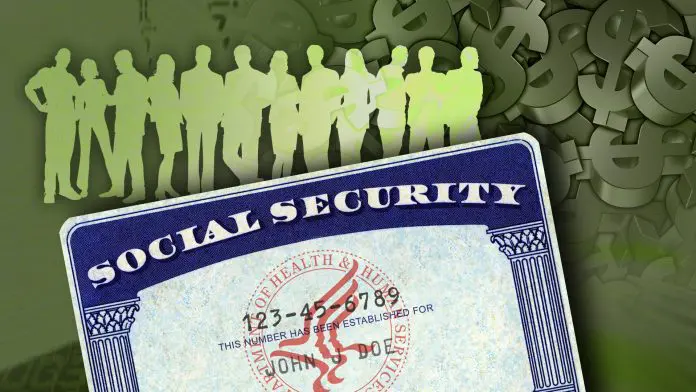The new year was marked by a substantial increase in the Cost of Living Adjustment (COLA), the largest in recent decades. Social Security benefits consequently went up by over $140 a month on average. It is a record increase of 8.3% as it kicked in heralding the new year.
The exact amount of increase in the amount of social security varied for around 70 million Americans who have come to rely on the program, which varies with the inflation rate. Over 65 million Social Security beneficiaries will receive benefits this year, but slower economic growth has meant that some retirement benefits will be cut sooner than originally forecast.
Social Security And Medicare Funds Still Face Long-Term Shortfalls
The financial situation of both Social Security and Medicare, among America’s most crucial safety-net programs, continues to be hampered as the US economy faces the imminent prospect of sluggish growth. This highlights the pressure legislators in Washington and the Biden administration face while trying to protect continued benefits for the millions of retirees whose numbers keep increasing yearly.
The US government has released reports resented by the program trustees. It shows that Social Security and also Medicare is in danger of substantial shortfalls in the long run. This will lead to a reduction in retirement benefits. It will also force the authorities to send smaller payments to hospitals that are covered under the Medicare program.
The program’s future has re-emerged as a hot political debate as both Republicans and Democrats remain engaged in tough negotiations over America’s debt limit that keeps increasing. While the Republicans are all for cutting and restructuring aid to Social Security and Medicare programs, they want to protect their core base of the super-rich and corporates.

The Democrats have insisted that the programs must remain fully intact. Both Medicare and Social Security are bedrock programs that the elderly and the disabled in America rely upon for their retirement security. This was stated by Janet Yellen, the Treasury Secretary. She said that the Democratic administration was committed to ensuring that the long-term viability of such critical programs. This will ensure that retirees can reap the benefits of a lifetime of hard work and this is something that is owed to them.
The COVID-19 pandemic, the recession that followed, and the recession of 2022 have all led to a period of great additional uncertainty about the programs in recent years. This uncertainty was reflected in government reports in recent months.
Social Security Faces The Prospect Of Total Depletion Of Funds By 2033
The Social Security funds, managed by the Social Security Old-Age and Survivors Insurance Trust Fund, could face major depletion within a decade, possibly by 2033. By then the trust, which pays retiree benefits, will have funds to support only 77% of the total number of scheduled benefits.
The trustees have said that the change has been the result of downward revisions that have been made to the projected economic and labor productivity growth in America. The trust funds are replenished through payroll taxes, which are more robust when the labor market remains tight and wages are high. The recent effort by the Federal Reserve to rein in inflation with an increase in interest rates has impinged growth and threatens to drag the American economy into a prolonged recession.
The part of Social Security that provides funds for disability benefits is comparatively in better financial health. The trust funds have enough reserves to pay its bill total until 2031. That is three years more than the estimate given in 2022.
Long-Term Effects Of COVID-19 On Social Security Funds Being Felt But Positive Signs Emerge
The report reflects mounting evidence vis-à-vis the prolonged effects of the pandemic. The Medicare actuary reported that beneficiaries who passed on from pandemic-related ailments had been sicker than average even before they were infected. This finding caused them to rein in projections on medical spending over the population in the near future.
But while it is true that the Trustees of the program are facing an acute shortage in the next decade, there are signs that lawmakers will intervene to set right the depletion. The prospect of cuts in Social Security is scary for both present and future recipients. But it is not an issue that one should be wary of immediately.


Further, current retirees do not have the option of boosting their savings. But active members of the American workforce still have time to make every effort to increase their current saving rate. This will compensate for any cuts they could potentially face in the future. But the present set of retirees is not able to add to their savings in the absence of any chances of getting a job.
Under these circumstances, any cuts in Social Security to the present set of beneficiaries, or for those who are facing retirement soon, the situation is grim and they face dire financial consequences. Lawmakers are well aware of such a situation.
Now is a good idea to move ahead on concentrating on boosting savings in the event the direct prediction on Social Security cuts becomes a reality. For those who continue to hold down on jobs, modestly cutting back even modestly on spending could end up freeing thousands of dollars every year. You need to invest the saved money astutely. You will end up with a robust nest egg. That should be enough to cope exceedingly well with cuts in future Social Security payments. They might amount to even a fifth though some are hopeful that it will be way lesser.
There is no such thing as excess saving for retirement. So in the event that there are no cuts in Social Security, you will be in a far better financial position as you will have the extra savings to boost your retired life. Just depending on Social Security for your retirement plans will only end up giving you very limited spending power.






